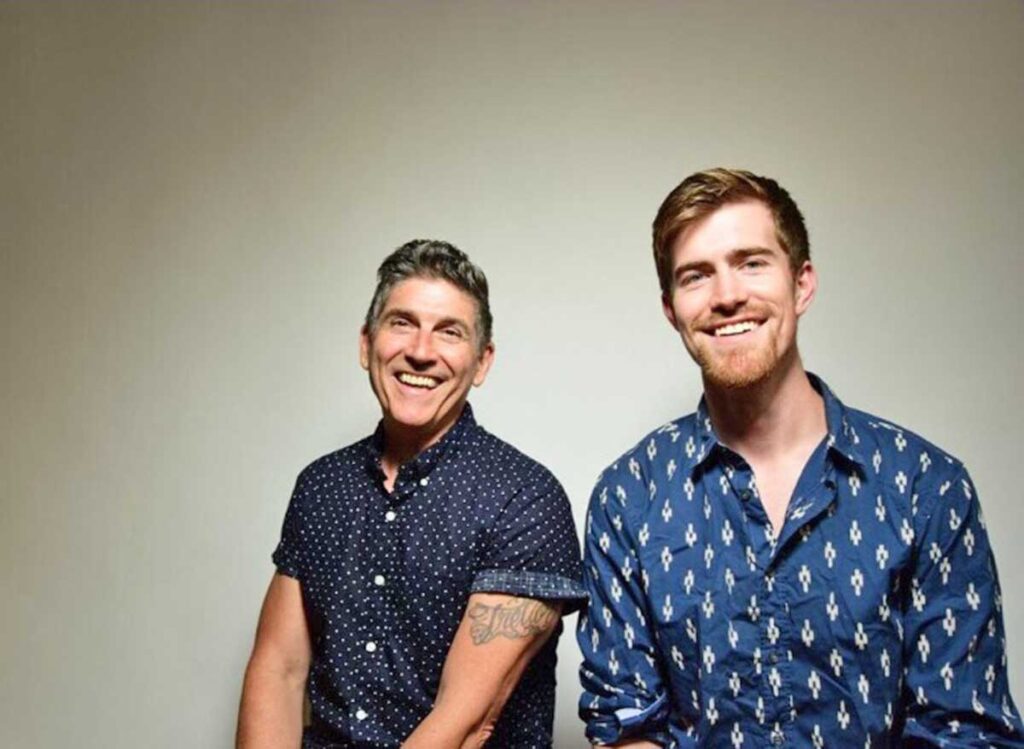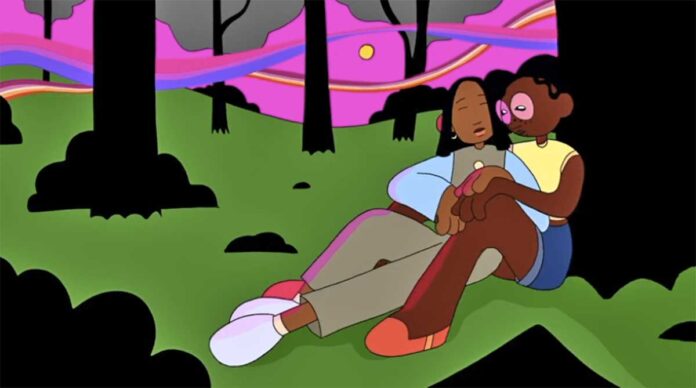In order to amplify LGBTQ+ youth voices, Trevor Project co-founder and writer Celeste Lecesne has teamed up with songwriter/recording artist Ryan Amador to create the Future Perfect Project (FPP). “How Life Is: Queer Youth Animated” is one of their most recent projects — a series of short animated films that feature stories and insight from queer youth in their teens and early twenties.
“The young people got to record their story in their bedrooms, we didn’t have to go anywhere,” Lecesne said. “That was really the impetus, to encourage young people out there to maybe hear their own story being told, or some version of their own story.”
To kick off Pride month, the film series was released in pairs on June 1 on the Future Perfect Project’s YouTube and IGTV channels. So far, six episodes have dropped, with the following four set to come out on June 22 and 29. The films average about two minutes in length and focus on the obstacles that LGBTQ youth face, including coming out, navigating relationships, living in blended families, homophobia, stigma and much more.
“‘How Life Is: Queer Youth Animated’ spreads the word about queer youth and creates a world where they are safe, seen, and celebrated in their homes and communities,” Amador said in a press release.

As part of his work through the Trevor Project, the nonprofit suicide prevention organization geared toward LGBTQ youth, Lecesne travels around the country, going into schools and talking to young people. In so doing, he found that many young queer people are much more socially, culturally and politically aware than previous generations.
“The social justice component that they have is sort of built into their hard drive, and I’d never seen it before in young people that age,” Lecesne said. “Within the LGBTQIA+ community they had an enormous amount of generosity in terms of allowing people to be themselves even though they were different.”
Lecesne wanted to find out if queer youth everywhere are more socially and emotionally intelligent, or if it was happening only in “big cities in blue states,” he said. He invited Amador to accompany him on his travels to cities across the country to engage with youth. They started in Philadelphia, eventually got funding and hired other teaching artists, and the Future Perfect Project took shape.
Through the Trevor Project, Lecesne works with LGBTQ youth who typically don’t receive the support that they need from their family, teachers or peers, and the toxic ramifications of that lack of support.
The Trevor Project’s 2021 National Survey on LGBTQ Youth Mental Health reported that in the past year, 42% of LGBTQ youth and over half of trans and nonbinary youth gave serious thought to committing suicide. The survey also reported that over 80% of LGBTQ youth said that their living situations became more stressful due to the pandemic. One third of LGBTQ youth said that they lived in an LGBTQ-affirming household.
The FPP film series portrays queer youth who are met with love and support from the people in their lives.
“Imagine my delight to know that young people were actually out there thriving,” Lecesne said. “I wanted to be able to give them the tools to be able to express themselves as clearly as possible.”
The first film in the series features Brianna, a 17-year-old Black queer woman from Philadelphia.
“The last thing I want Black queer women to feel like, is that they aren’t good enough,” Brianna said in her film. “If I can do my part just by speaking up and being strong about who I am, that in itself gives other queer Black women the chance to do that.”
Another of the films follows Ken, an 18-year-old whose pronouns are they/them.
“Visibility in the queer community is kind of like giving up your personal, civic life for the push for safety for another person’s,” Ken said in their video. “And to show them that you can be who you are — this is normal. You don’t have to change. And I love that. Love definitely is a superpower, for me at least.”
In producing the series, Lecesne and Future Perfect Project staff interviewed queer youth for an hour, then trimmed their interviews down to two minutes or so. They also paired the young people with an animator who identifies similarly to them.
“Future Perfect Project” got its name from the way Trevor Project facilitators tend to start workshops, by telling youth their stories of what it was like to come out when they were their younger selves, Lecesne said.
“When I was 15 years old, homosexuality was a crime and a sin and a mental disease,” he continued. “That’s what I grew up with. I just thought when I was that age, ‘this is insane — they’re talking about little old me and my ability to love.’ What we tell these young people is, it took 50 years for that to change. I must have been living in the future when I was 15 and it took that long for the future to arrive. We have to deduce that they are living in the future that hasn’t yet arrived.”
Ultimately, Lecesne hopes that LGBTQ youth who watch the film series come away feeling like “they’re not alone, that being yourself is the best game in town and in some ways the only game in town. Only you can be yourself, nobody else can do that for you. I think that older people can learn from [youth] that they have to change. We have to change, and they can show us how because they’re doing it in real time for the first time.”
For more information, visit www.thefutureperfectproject.com/.
